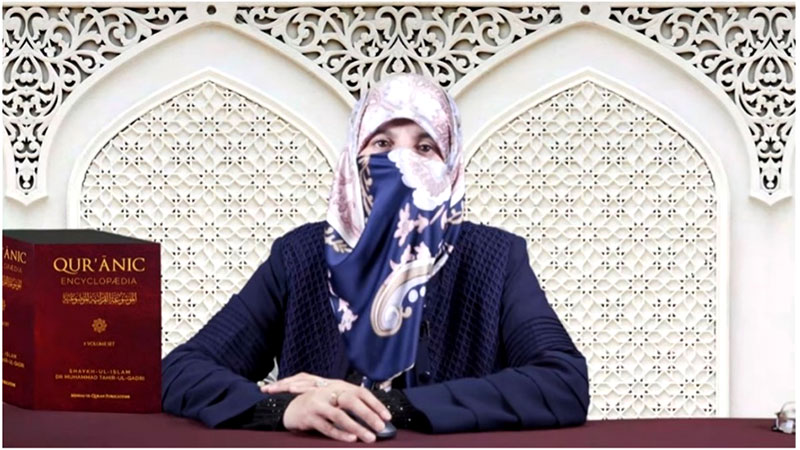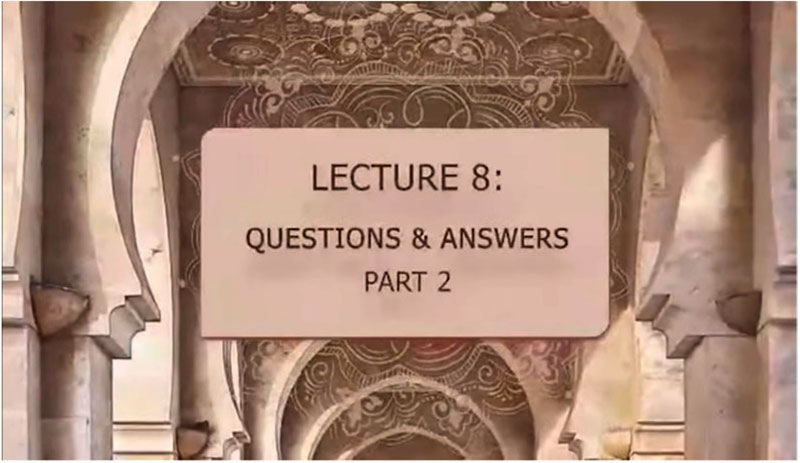
Minhaj Sisters UK has organised a 4-week course titled ‘Al-Nasiha – Strengthening the Family Unit’ with Dr Ghazala Hassan Qadri. In the final week, people were asked to send in their questions for Dr Ghazala on marriage, family life and any problems or challenges they may be experiencing which would be answered in two parts. In the final session, Dr Ghazala continued to answer questions regarding the topic of children.

Question 6: What would you classify as quality time with children?
Dr Ghazala expressed that quality time with your child is when you are mentally present for your child, when you deliberately interact with them to learn more about them and bond with them. The point of any activity with your child is to spend time with them. So, if there are any chores or activities that they enjoy doing that you can do and learn together, then that is the perfect opportunity to have quality time with them. The key is to take some extra special time out for your children.
Question 7: What advice would you give about balancing individual time for each child?
Quality time is not about the quantity of that time but the quality of time you are giving. Dr Ghazala highlighted that it is important to do things as a family and create opportunities to do things together whether it is going on a walk, doing chores, or praying together. The act of coming together is extremely important. It is crucial that the children, irrespective of age, hang out together and create opportunities to bond with one another.
Question 8: What advice would you give to parents on helping young children to love and establish prayer?
Dr Ghazala advised to make sure that prayer is part of your household, make sure you pray on time as well as other people within your household. The children need to see the act of prayer all the time, and that prayer becomes a normal part of household activities. Try not to pray alone in your room but pray publicly in a room where your children are usually gathered so they are able to observe you. We instil basic habits within our children at a young age, such as washing their face, brushing their teeth etc. In the same way, Dr Ghazala highlighted that we should also be teaching them about Wudu and its actions. They may not understand why at the beginning, however, as they slowly start to get used to it, it will become second nature. Children tend to mimic whatever their parents or guardians are doing, so have your child stand next to you and perform the actions along with you. Rewarding your children when they have prayed can help them love and establish prayer as well.
Question 9: How do you teach strong Islamic values to your children when your partner does not pray?
Dr Ghazala expressed that you should try to be the best role model for your children by teaching them about having good morals and manners as this will teach them not to be judgmental. However, it is important to not draw attention to your partner not praying and avoid saying negative things to your partner or to the children. It is also important to have a good, solid relationship with your partner. If there is love, trust and a good understanding then that can be developed further, and you can slowly encourage them to start praying.
Question 10: What is Islam’s stance on dealing with challenging family dynamics after marriage?
One of the root causes of these problems, is that we often engage in backbiting and discuss the faults of others. Irrespective of whether what is said is true or not, backbiting is extremely abhorrent and not engaging in this kind of behaviour can lead to many of the problems disappearing. The weaknesses of your partner should not be discussed with anyone else and you should try to protect one another.
Question 11: How can young women combat the negative influence of social media?
Dr Ghazala advised to reduce your social media activity as much as possible. If you want to regain your sanity and retain your mental health, then it is best not to use social media. However, this can be very difficult so one should try to limit the platforms they are on as they are created to be addictive. It is also very important to limit the time you spend on social media platforms and be discerning about who you are following as they can influence you.
Question 12: How can mothers protect their children from online dangers?
Dr Ghazala recommended that you should try to delay giving your child a mobile phone for as long as possible. Nonetheless, if they are given one, then it is extremely important to lay the ground rules and discuss what is allowed and what is not. Teach them not to speak to strangers online and supervise what they are watching. Install parental apps so you can monitor their activities. To be able to trust your child in the future, good habits need to be instilled at the beginning so that they understand the dangers of social media.

Comments